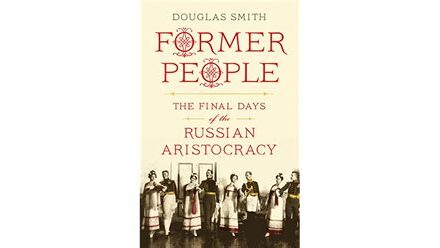The aim of practical criticism as embodied in the book review, the movie review, or the music review is pedagogic, and must be so without apology. When well-written, informed, and insightful, reviews instruct all of us in how to better understand what we have read, seen, or heard, or point us in the direction of what it would profit us to read, see, or hear. Sensible people welcome that instruction. The most thoughtful cannot sustain their thoughtfulness without it.
The review space is where the audience for art meets for discussion and argument. It’s the agora without Socrates but with Coleridge, so to speak, who was the father of practical criticism as we know it, which he described as, “intense brooding on a work to grasp its essential quality, and illustrating this by careful and subtle reference to details.”
There were several generations in this country, as well as in England, when many notable reviewers where either Christians or still held a respectful regard for the faith that undergirds our civilization: Among them were, T. S. Eliot, W. H. Auden, Cleanth Brooks, Allen Tate, Caroline Gordon, John Crowe Ransom, Robert Penn Warren who though a non-believer found in Christianity, “the deepest and widest metaphor for life.” Warren’s kind of appreciation was common in the literary community, even the academy, into the 1960s
Those days are long gone, and gone with a ferocity that even those who lived through the change, such as I, did not foresee. Take almost any major source of book reviews, such as the once-reveredNYRB, and the still highly regarded New York Times Magazine, to the Times Literary Supplement and the London Review of Books, the intellectual fusion of politicization and postmodernism over the past 50 years has made them actively hostile to any conservative or Christian voice, unless of course the author is a liberal Christian who cares more about gay marriage than God or a conservative who has been mugged by the elites of his integrity.
The platforms where book reviews are widely read and still have influence are now just a few and they are off limits. The New York Times Book Review always has one or two reviews worthy of our time but their books are often chosen with an eye to promoting this or that political or ideological cause or some publishers big investment. Conservative or Christian titles are treated only if their import makes them necessary and are usually handed over to a reviewer with knifes already sharpened. This publication should bear a “Conservatives and Christians Beware” somewhere on the cover. This is not to ignore the quality of the writing and reflection that is found there, but to regret its blinders.
The blight of ideology is only a part of the reason that the review has lost much of its importance in shaping the general tastes and attitudes of contemporary culture. Only in the United Kingdom does the art of reviewing still flourish in the English language, only to be found by the persistent searching of a thirsty soul. The Guardian, the TLS, the Literary Review, and the Spectator continue the tradition of intelligent, informed, and engaging reviewing going back to the early 19th century. In the United States, newspapers like the Washington Post and the New York Times still publish worthwhile reviews, such as those of the renown Jonathan Yardley, but with budgetary trimming in the print media there are fewer and fewer books receiving serious attention by serious people. The recently created Los Angeles Review of Books, whose editors have recognized the same plight, are making good progress in becoming what the New York Review of Books once was and never will be again.
Film reviewing is in a much healthier state thanks not only to the public clamor for movie recommendations but also to the national prominence provided by Rotten Tomatoes and Metacritic to many fine reviewers. The problem with the bulk of film reviewers is that too few of them show any fairness towards films with traditional or religious point of views. Only the financial success in the face of critical damnation of films like “The Passion of the Christ” has tempered their prejudice, but only slightly. The late Roger Ebert, clearly a man of the Left, treated films fairly irrespective of their worldview — a good movie was a good movie whether Ebert shared its meaning or not.
TV reviewing has never risen to the critical mass of book and movies reviews, although culturally speaking they are of tremendous importance. The kind of prominent TV reviews you encounter in major magazines such as People or Entertainment Weekly are never probing, due to length restraints, and often give a pass to mediocrity. We are arguably in another Golden Age of Television, a time when major film directors, such as Stephen Soderbergh, regard television as a more creative medium — TV reviewing needs to catch up, and once again there needs to be reviewers without a predisposition to dismiss a show with the glint of genuine religiosity or traditional values.
When it comes to music reviews, there is plenty of vitality in the critical communities that care about the various genres of popular music as well as classical music. Into the pages of this Review we will invite informed “brooding” on all kinds of music, including, of course, sacred music.
The Christian Review launches with a modest goal — to publish each day reviews that will engage and challenge those who find such input essential both to chew on what they have already experienced or to receive direction on where to look next. The conversation in The Christian Review will take on a life of its own, creating controversies, arguments over the canon, and a continual struggle with the question of just how to bring the Christian intelligence to bear on works of art and the culture as a whole. That, I hope, will be a contribution to both the faith and to the culture itself.















It all sounds great; what worries me is that we’re getting nowhere (virtually) in our fight for the lives of our pre-born American citizens. Judging by my own diocese we need a lot more pro-life ACTION from the USCCB to pressure every Diocese to take ACTION that’s effective! And I don’t mean the kind of pontifications that have very little effect in the Church pews! The 42 years of abortion on demand is unforgivable considering that not one bishop has been martyred!
Wow! You gonna let your son really write reviews?
Yes, when he is ready! 🙂
I am interested in being a part of this. It already looks interesting. I am a writer and founding member of a Lay Contemplative Community in Georgia. BRG
List me as BRENDA RAUDENBUSH.
Send me an email at hudsondeal@gmail. All the best, Deal Hudson